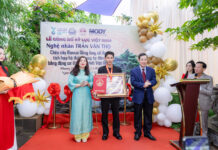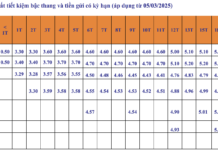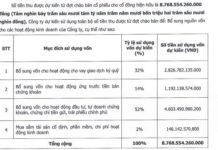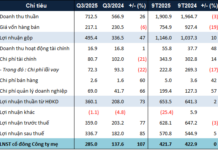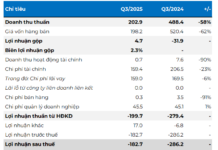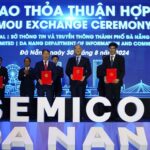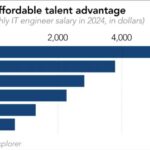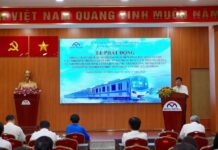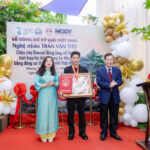To develop Vietnam’s semiconductor industry, in addition to policies, infrastructure, and environment, human resources are considered a crucial factor to promote this sector.
At the seminar “Preparing Vietnam’s Workforce for the Global Semiconductor Industry” held during the exhibition, Mr. Frank Steinert, representing NXP Semiconductors as a top global manufacturer and provider of semiconductor solutions for the automotive, industrial infrastructure, mobile, and Internet of Things sectors, offered valuable insights.
NXP currently serves a diverse range of customers in the automotive, telecommunications, and technology sectors. The company supplies numerous products that their customers incorporate into their manufacturing processes. Since 2008, NXP has collaborated with FPT Software to develop software that complements the corporation’s hardware offerings.
Currently, NXP has approximately 500 engineers working with FPT Software. “We have established an office in Hanoi and are focused on talent development, leveraging NXP’s global resources and network,” shared Mr. Frank Steinert.
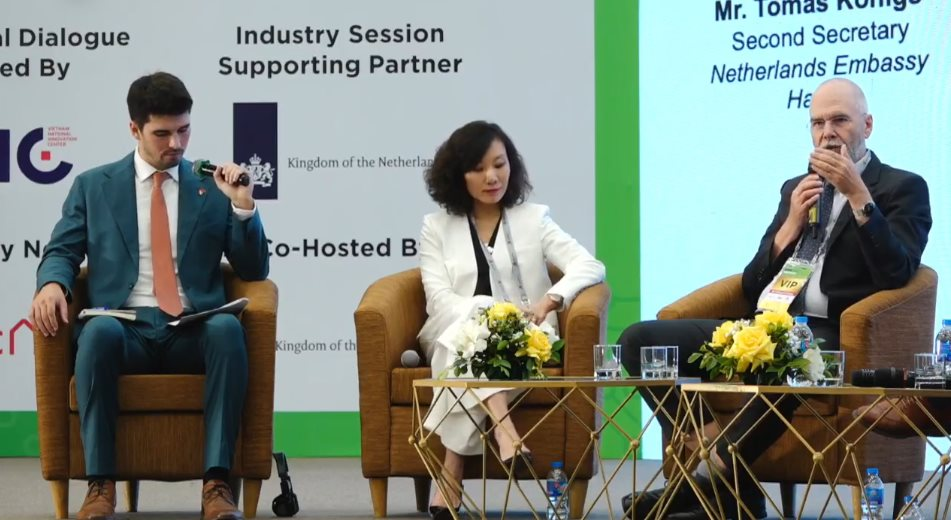
Mr. Frank Steinert, General Director of NXP Semiconductors Vietnam (right), shared insights on the advantages as well as the areas where young Vietnamese workers and engineers need to improve. Photo: MH
Vietnamese Workers are Skilled and Eager to Learn but Lack “Soft Skills”
With his extensive experience working in Vietnam, Mr. Frank Steinert observed that Vietnamese engineers possess a strong willingness to learn. They are eager to acquire new technologies and advance their careers. For instance, through their long-term collaboration with FPT, Mr. Frank Steinert noted that many engineers eventually left to start their own companies after gaining experience at FPT. These individuals demonstrated exceptional talent and determination.
“However, we also noticed an area where Vietnamese workers could improve. Sometimes, they tend to start from a fixed point and are hesitant to make or discuss mistakes, which can hinder the identification of solutions. It would be more beneficial to delve deeper into understanding the reasons behind errors to find effective remedies,” shared the General Director of NXP Semiconductors Vietnam.
Additionally, according to Mr. Frank Steinert, many young Vietnamese aspire to climb the management ladder quickly. However, he suggested that instead of solely focusing on vertical advancement, they should strive to gain a deeper understanding of their work and explore different aspects of various job positions. Businesses should also encourage this cultural shift.
“Numerous foreign companies and investors are willing to transfer technology and knowledge to Vietnam and provide long-term support to local personnel. Another challenge is language proficiency. While many individuals can read and write, they are often reluctant to engage in discussions, analyze issues, or express their ideas, possibly due to language barriers or other reasons,” he added.
“Given the highly international nature of the semiconductor supply chain, which demands extensive collaboration with global teams, it is crucial for Vietnamese workers to enhance their listening, discussion, and self-expression skills,” advised Mr. Frank Steinert.

Experts attending the seminar “Preparing Vietnam’s Workforce for the Global Semiconductor Industry.” Photo: MH
Sharing the same perspective as Mr. Frank Steinert, Ms. Ly Nguyen, Project Director of the Tony Blair Institute in Vietnam, commended the Vietnamese government for its forward-thinking approach and concrete action plans regarding semiconductors. Vietnam is focusing on STEM education and human resource development for high-tech industries like semiconductors. To foster the growth of this sector over the next 5-10 years, the workforce will undergo significant changes, and preparations for this transformation must begin now.
According to Ms. Ly Nguyen, Vietnam still has a long way to go in the semiconductor industry, especially in terms of achieving the goal of training 50,000 semiconductor engineers and ensuring their quality.

High-quality human resources are imperative for Vietnam to participate in the global semiconductor industry supply chain. Illustrative photo
“Vietnam boasts a young, diverse, and tech-savvy workforce,” Ms. Ly Nguyen acknowledged. However, she emphasized that the semiconductor industry, known for its high-tech and precision requirements, necessitates even more advanced skills.
In addition to technical expertise, the industry still demands soft skills such as problem analysis, discussion, and problem-solving, which are essential for Vietnamese workers to thrive,” emphasized the Project Director of the Tony Blair Institute in Vietnam.
How can we bridge the gap between fresh graduates and the industry’s requirements?

Even a minor mistake in the semiconductor industry can be extremely costly. Photo: Arizona
Addressing this issue, Dr. Le Thai Ha, Director of the Center for Training in Semiconductor Circuit Design at Phenikaa University, stated: “We recognize a significant gap between the skills of newly graduated engineers in Vietnam and the expectations of businesses, particularly in the semiconductor industry.”
In software development or design, a minor error may lead to future problems. However, in the semiconductor industry, even a tiny mistake can be incredibly expensive, sometimes requiring the remanufacture of an entire chip. Consequently, businesses in this sector often prefer experienced engineers over fresh graduates, creating a vicious cycle that we are striving to break. Ultimately, experienced engineers also started as newcomers, and we must provide opportunities for young engineers to enhance their skills,” Dr. Le Thai Ha explained.
According to the Director of the Center for Training in Semiconductor Circuit Design at Phenikaa University, their center is committed to bridging the skill gap between academic programs and industry demands. “We investigate businesses’ needs and ask them about the specific skills and requirements they seek. Based on this input, we design our curriculum and establish labs for practical training, simulation systems, and tool suites for our students,” he added.
Additionally, we offer training programs for instructor development, including sending our top performers to Taiwan for specialized training. These instructor-trainees gain hands-on experience in designing actual chips,” Dr. Le Thai Ha shared.
However, he noted that while young people are willing to invest time and money in a four-year degree, they are sometimes reluctant to enroll in short-term courses that could enhance their employability. Therefore, we must demonstrate the value of these skill-enhancing courses to them.
“Businesses are also being cautious and waiting to see if our semiconductor training programs are good enough and provide them with the desired value. We remain patient and focus on quality, and time will tell,” assured Dr. Le Thai Ha.
The experts unanimously agreed that in the context of the global semiconductor supply chain, it is essential for young workers to possess a combination of technical expertise, soft skills, and language proficiency as they enter the highly competitive, demanding, and internationalized semiconductor labor market.
The World’s Leading Economy Shares 4 Investment Opportunities in Vietnam, Including a Sector Worth Over $6 Billion
“Vietnam, the so-called “Tiger Cub Economy” of Southeast Asia, boasts immense growth potential. With a thriving landscape of dynamic businesses and a vibrant culture, it’s primed to roar ahead. The country’s resilient spirit and diverse strengths across sectors position it as an emerging powerhouse, ready to pounce on opportunities and take center stage in the region’s economic narrative.”



